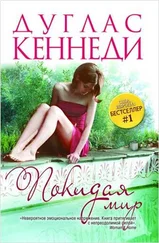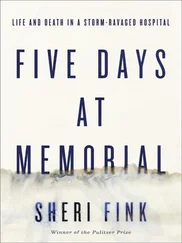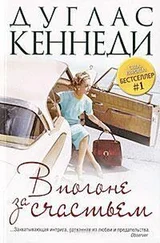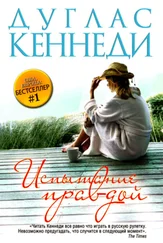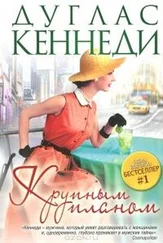Дуглас Кеннеди - Five Days
Здесь есть возможность читать онлайн «Дуглас Кеннеди - Five Days» весь текст электронной книги совершенно бесплатно (целиком полную версию без сокращений). В некоторых случаях можно слушать аудио, скачать через торрент в формате fb2 и присутствует краткое содержание. Год выпуска: 2015, Жанр: Современная проза, на английском языке. Описание произведения, (предисловие) а так же отзывы посетителей доступны на портале библиотеки ЛибКат.
- Название:Five Days
- Автор:
- Жанр:
- Год:2015
- ISBN:нет данных
- Рейтинг книги:4 / 5. Голосов: 1
-
Избранное:Добавить в избранное
- Отзывы:
-
Ваша оценка:
- 80
- 1
- 2
- 3
- 4
- 5
Five Days: краткое содержание, описание и аннотация
Предлагаем к чтению аннотацию, описание, краткое содержание или предисловие (зависит от того, что написал сам автор книги «Five Days»). Если вы не нашли необходимую информацию о книге — напишите в комментариях, мы постараемся отыскать её.
Five Days — читать онлайн бесплатно полную книгу (весь текст) целиком
Ниже представлен текст книги, разбитый по страницам. Система сохранения места последней прочитанной страницы, позволяет с удобством читать онлайн бесплатно книгу «Five Days», без необходимости каждый раз заново искать на чём Вы остановились. Поставьте закладку, и сможете в любой момент перейти на страницу, на которой закончили чтение.
Интервал:
Закладка:
As soon as I said that I had a fit of the giggles.
‘Sorry, sorry,’ I said, ‘that sounded ridiculous.’
‘Or rather wonderfully old-fashioned — “I never recite poetry on a first date.”’
I felt myself clench again.
‘This is not a first date,’ I said, sounding rather terse.
Now it was Richard’s turn to express embarrassment.
‘That might be the stupidest thing I’ve ever said. And totally presumptuous.’
‘Just needed to get that clear.’
‘It was clear already. I just sometimes let my mouth work before my brain. And not for a moment did I think—’
‘Emily Dickinson,’ I heard myself saying.
‘What?’
‘The stuff I recite to myself. It’s frequently Emily Dickinson.’
‘That’s impressive.’
‘Or weird.’
‘Why is it weird? I mean, if you told me it was Edgar Allan Poe or, worst yet, H. P. Lovecraft. ’
‘He didn’t write poetry.’
‘And he might be the most overrated writer this country ever produced — but I’ve never gone for High Gothic. I suppose the sort of writing I like most deals with the heart of the matter, the everyday stuff of life. ’
‘As Emily Dickinson did.’
‘Or Robert Frost.’
‘He’s very underrated now, Robert Frost,’ I said. ‘Everyone always characterizes him as the old Yankee, the grandfatherly poet. And yes, there is “the woods are lovely, dark and deep, and I have promises to keep, and miles to go before I sleep”. which is always held up as American Pastoral and the sort of poem that even truck drivers can appreciate.’
‘Unlike Wallace Stevens.’
‘Well, he did sell insurance. In fact, he remained in Hartford — insurance capital of America.’
‘That’s some claim to fame.’
‘Ouch.’
‘Sorry — that was catty of me.’
‘But you’re right. Hartford has little to recommend it.’
‘Mark Twain lived there for a while. while he was selling insurance.’
Richard paused for a moment, clearly taking me in.
‘Did I say something wrong?’ I asked.
‘On the contrary, I was just allowing myself to be impressed by all that you know.’
‘But I don’t know that much.’
‘Even though you can talk about the early non-literary career of Mark Twain and cite Wallace Stevens.’
‘I wasn’t citing Wallace Stevens. I was talking about Robert Frost.’
‘And your favorite Frost poem?’ he asked.
‘It’s probably the least traditional and the most disquieting of all his poems. ’
‘“Fire and Ice”?’
Now it was my turn to look at Richard with care.
‘You really know your stuff,’ I said.
This time there was no shy smile, no turning away from my field of vision. This time he looked directly at me and said:
‘But the only reason I am talking about these things is because you know your stuff.’
‘And the only reason why I’m telling you all this is because you know your stuff. You know “Fire and Ice”.’
‘But I can’t recite it.’
‘I bet you can.’
I took a large steadying sip of my wine. Lowering my head I gathered my thoughts, my memory flipping me back to senior year in high school, that day in assembly when I had been asked by my English teacher, Mr Adams, to stand up in front of the school and recite.
No, no, don’t replay that again. Don’t remember how you.
Why do we always seem to hark back to the bad stuff? The moments when we were embarrassed, mortified, mocked. When the very thought now of reciting something and being rewarded for it tosses up the most anguished remembrances of things past. When.
‘Some say the world will end in fire
Some say in ice.
From what I’ve tasted of desire
I hold with those who favor fire
But if it had to perish twice
I think I know enough of hate
To say that for destruction ice
Is also great
And would suffice.’
Silence. Richard’s gaze — which he held from the moment I looked up at him and began to recite the poem — didn’t waver from me. But having finished the recitation I found myself almost looking at him for validation. Then realizing that I was staring at him like a schoolgirl wanting to be told she had pleased the teacher, I turned away. Richard saw this and ever so briefly touched his hand against my left arm as he said:
‘That was impressive. Very impressive.’
I felt myself flinch as he touched me — even if the gesture was in no way redolent of anything but gentle reassurance.
‘Again you’re being far too kind,’ I said.
‘No, just accurate. Why do you know that poem?’
‘Doesn’t everyone know that poem?’
‘You’re being disingenuous.’
Disingenuous. He actually used that word. I smiled. He smiled back. And for the first time in this conversation I let down all the self-editing barriers and found myself telling him a story I had always kept to myself.
‘I read the Frost poem during my first semester of senior year. I had an English teacher, Mr Adams, who actually rated me — even though I was a science geek. He was this man in his fifties — very patrician New England, very erudite, very much a bachelor about whom nobody knew a thing. Anyway, Mr Adams worked out early on that, though I was very much drawn to chemistry and biology, words played such an important role in my life. Mr Adams gave a seminar on “Great Writing” for seniors. It was an elective, and there were only five of us in the class. “Book geeks” is what the cheerleader brigade called us. And, of course, they were right. Mr Adams called us his “literate brigade” — and over the course of that final year, he had us reading everything from Joyce’s Portrait of the Artist or Henry James’s The Wings of the Dove to Chekhov’s The Cherry Orchard. which I particularly loved because it so dealt with self-delusion and the way we all resist looking at the reality around us. But he also made us read American poetry. Dickinson. Whitman. Stevens. Frost. I remember the first time he introduced us to “Fire and Ice” — and I couldn’t believe this was the Robert Frost whom everyone looked upon as the kindly grandfather. This was a poet who had a libido, who felt desire and anger and rage. All the things I was feeling in my own messed-up, “no one gets me, why am I so alone?” teenage way. We spent two whole classes talking about the poem — and how, in just a few short lines, it pointed up the fact that, within all of us, there is this capacity for love, for grace, and for all the dark stuff we don’t want to acknowledge.
‘Anyway, the poem became a real benchmark for me. At the end of the semester — right before Christmas — I actually signed up for a speech competition that was to be held at an assembly in front of the entire school the day before we broke up for the holidays. My speech teacher, Mrs Flack, encouraged me to go in for the competition — the first prize for the winner being that year’s edition of the Webster dictionary. which, for a word junkie like me, was something I really wanted to win. And Mrs Flack — who once told me she tried being an actress for around ten minutes in New York during the late sixties — really thought the poem was an amazingly original choice for the competition. She worked with me for a couple of hours on my presentation. It involved all the lights in the hall blacking out and me being discovered in a single white spot and then reciting the poem in a highly controlled, quiet way, with me staring out at the audience at the end, and the light snapping off. When I think about it now, maybe it was all too Greenwich Village circa 1965 for Waterville High in 1986. But I thought it really edgy and out there.
‘Then backstage on the day of the competition, right before going on, I had the biggest case of nerves imaginable. Completely seized. Terrified of getting out there in front of the whole school and looking like an idiot. Don’t know where this came from. Never had it before. When they called me — told me it was my time to go on — I refused to move. Mrs Flack was backstage. She coaxed me onstage. The light blacked out. I moved quickly to the assigned spot. The spotlight snapped on. There I was, alone, staring out into blackness, knowing I just had to say the words as I had rehearsed them, and all would be over in less than a minute, and I could retreat again into my private little life. But, standing there, that spotlight glaring down on me, feeling absolutely naked, exposed, absurd, my mouth couldn’t open. I was frozen, immobile, ridiculous. After a half a minute like this, the giggles started. Even though I could hear some of the teachers hushing the other students, slow hand-clapping started, and a few whistles, and then a girl — whom someone told me later was Janet Brody, the captain of the cheerleading team — yelled: “Loser.” Everybody laughed. The spotlight snapped off. Mrs Flack hurried out and got me off the stage. And I remember, once we were in the wings, putting my head on her shoulder, crying uncontrollably, and Mrs Flack having to call my mother to come collect me. Mom — who was never the most touchy-feely of people, and who hated any kind of personal weakness — drove me home, shaking her head, telling me I would spend the rest of my senior year trying to live down what had just happened, and “Why on earth did you set yourself up to fail like this?” I said nothing, but those words slammed into me like an out-of-control car. Because they were so accurate. I’d set myself up. I’d allowed myself to be publicly shamed. I’d short-changed myself. Just as I did so often afterwards as well.
Читать дальшеИнтервал:
Закладка:
Похожие книги на «Five Days»
Представляем Вашему вниманию похожие книги на «Five Days» списком для выбора. Мы отобрали схожую по названию и смыслу литературу в надежде предоставить читателям больше вариантов отыскать новые, интересные, ещё непрочитанные произведения.
Обсуждение, отзывы о книге «Five Days» и просто собственные мнения читателей. Оставьте ваши комментарии, напишите, что Вы думаете о произведении, его смысле или главных героях. Укажите что конкретно понравилось, а что нет, и почему Вы так считаете.




